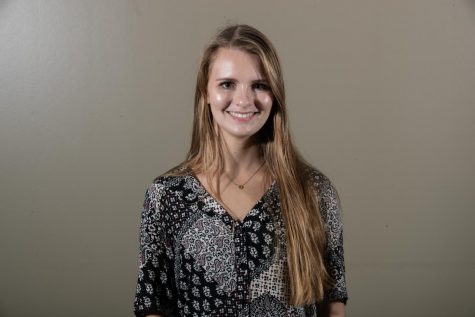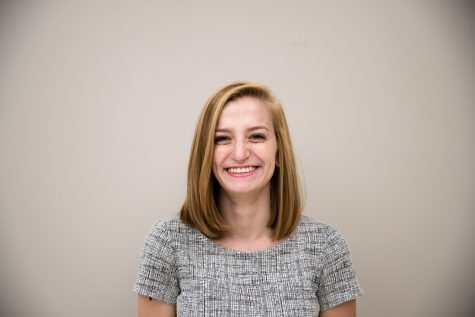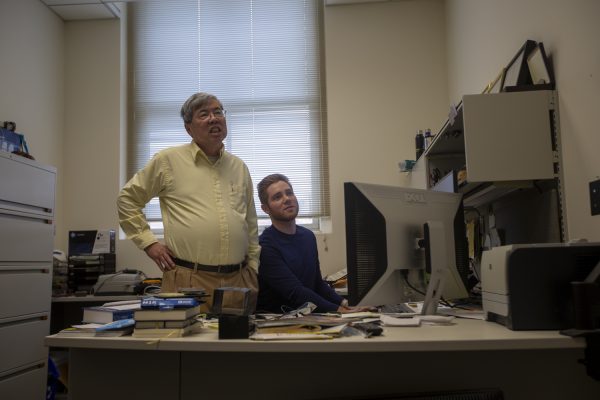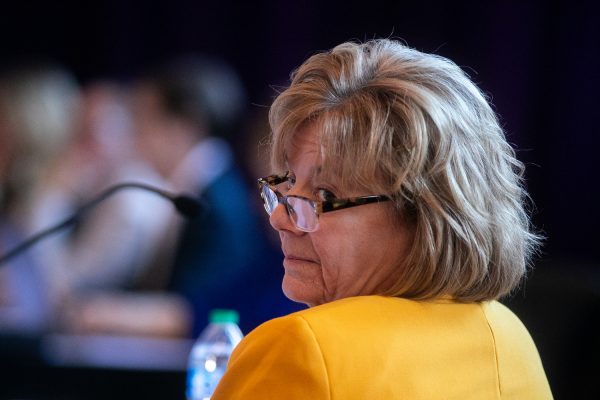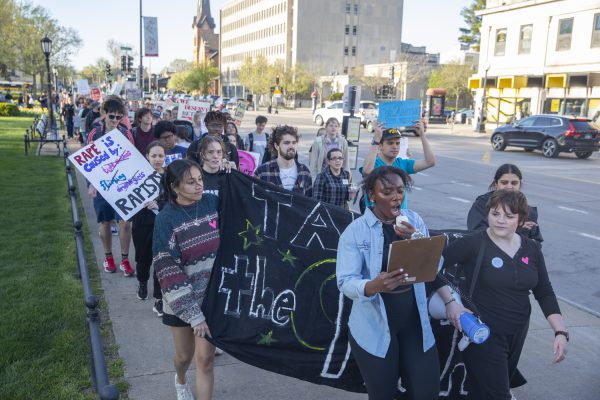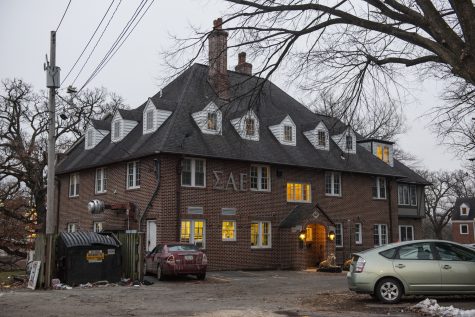Four UI shared-governance branches back public/private partnership
Following approval by the state Board of Regents of the University of Iowa’s public/private partnership on Tuesday, campus members of shared governance championed the deal and the role they will play in its implementation.
Steam swirls around the University of Iowa Power Plant on the evening of Monday, Jan. 14, 2019.
December 11, 2019
After the state Board of Regents on Tuesday approved a public/private partnership that would allow a private firm to operate and maintain the University of Iowa Utility System, the four pillars of shared governance shared they stand in strong support of the agreement.
Shared governance at the university involves UI Student Government, Graduate and Professional Student Government, Faculty Senate, and Staff Council. All four were engaged in the process that developed a $1.165 billion public/private partnership between the UI and French companies ENGIE and Meridiam.
Those two firms form the concessionaire Hawkeye Energy Collaborative, the entity with which the UI will partner for the 50-year agreement. After paying consultant fees and outstanding utility-system bond debt, $999 million from the upfront lump sum will be placed into a new endowment, which shared governance will help allocate to campus.
Staff Council President Michael Weaver, assistant to the vice president for Research, said that university administration has been transparent about the transaction to the various branches of shared governance.
“I think we found a great partner,” he said. “[In] the last couple of days, I’ve gotten to spend some time with some ENGIE employees — both corporate employees as well as the Ohio State employees. Their testimonials have been overwhelmingly positive. I don’t have any reservations or hesitations when it comes to working with this company.”
Weaver said every section of shared governance will continue to hold the university accountable in the future when it comes to the public/private partnership.
GPSG Co-Sustainability Chair Christian Bako also expressed his approval of the public/private partnership in the present and the future, stressing the need for use of the UI’s Path Forward Steering Committee. The committee is dedicated to the implementation of the UI Strategic Plan.
RELATED: Regents sign $1.1 billion UI Utility System public/private partnership
“Shared governance is well-represented in the Path Forward Committee,” Bako said. “So, I think it’s important to have all shared-governance voices at the table when deciding how the funds resulting from the P3 agreement are allocated and spent, and I think the Path Forward Committee is a good place to do that.”
The Path Forward Committee, Bako said, will help determine where the additional funds are allocated among different organizations on campus, while a nonprofit board will be in charge of reviewing the operation and also overseeing yearly allocations. The board will consist of one regent, one Faculty Senate appointee, and the UI senior vice president for Finance and Operations.
UISG President Noel Mills told the DI in an email that she was optimistic about what the public/private partnership could bring, especially in regard to shared governance.
“I’m thrilled students have a seat and vote on the Path Forward Steering Committee and the Budget Review Board, which are the last two steps before the [nonprofit] board…” she said. “I feel content right now, but we all should stay vigilant to make sure student voices are always at the table.”
Faculty Senate President Sandra Daack-Hirsch said the future of the process for allocating the proceeds from the partnership is of particular interest to her pillar of shared governance.
“I think what’s been proposed in terms of how funds will be requested and granted is a good place to start the conversation,” Daack-Hirsch said in an email to the DI, “and in order for campus stakeholders to feel confident in the process, I think it needs to be vetted and challenged, which could result in revisions.”




